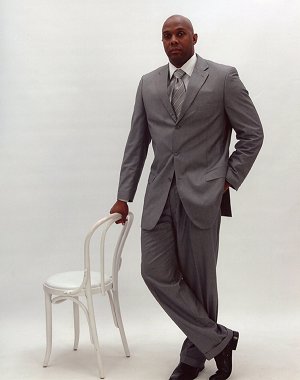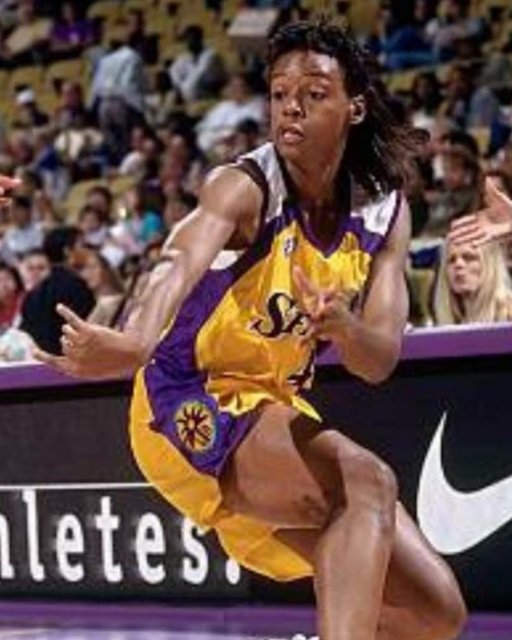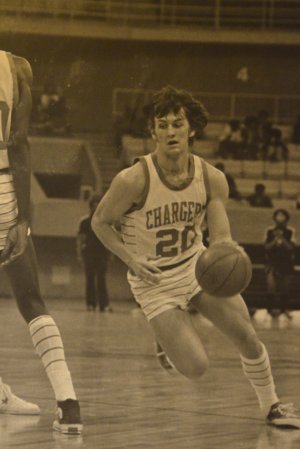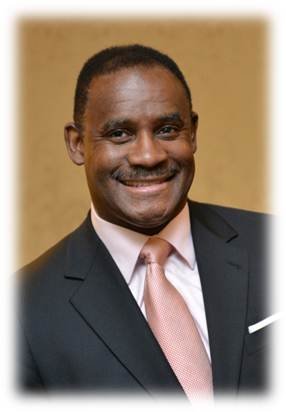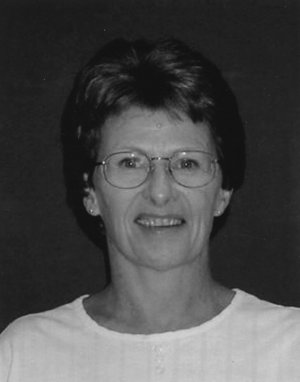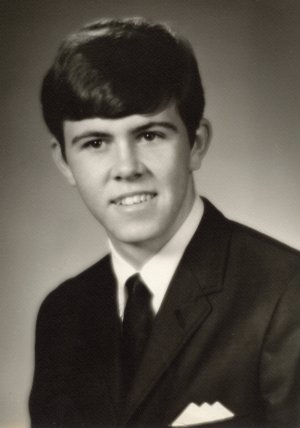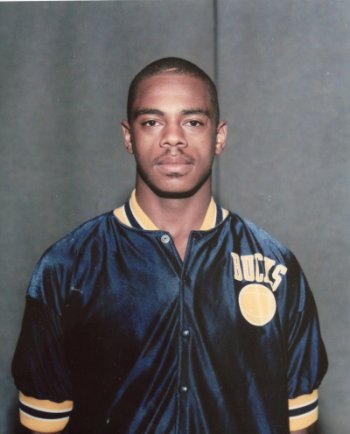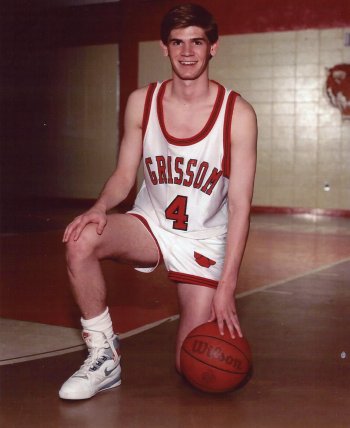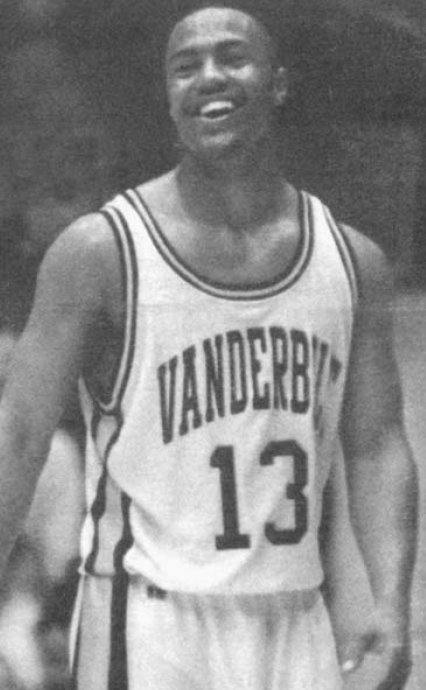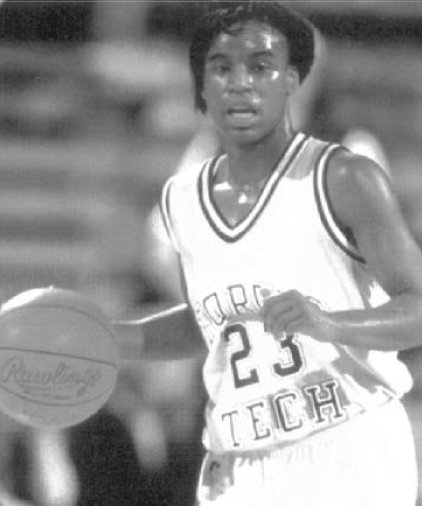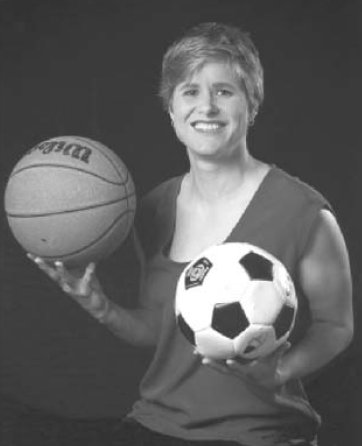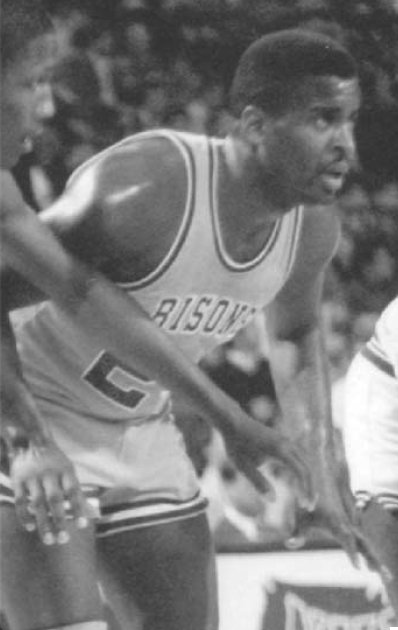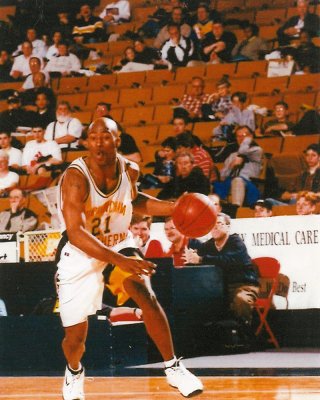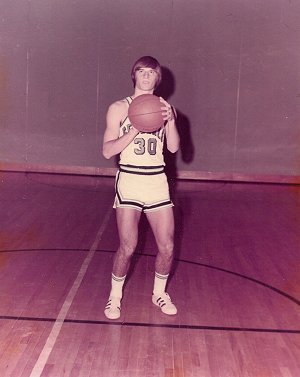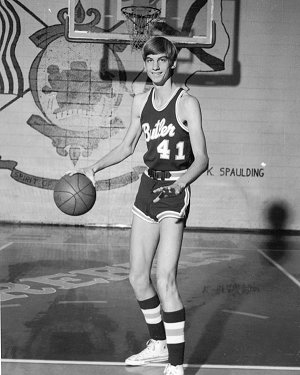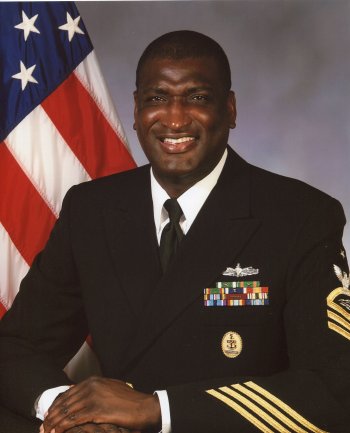

Nearly everybody called him Leroy, his middle name, when he was an All-City basketball player at Huntsville High School and later All-Conference at Middle Tennessee State University in a playing career that spanned most of the 1970s. Nowadays he generally answers to William, his first name. Hardly anybody calls me Leroy any more not since I joined the Navy, said Coleman. That was 27 years ago. William Leroy Coleman spent most of his early life near the banks of the Alabama River in Selma, Ala., the county seat of Dallas County, during the turbulent 1960s when the town was one of the flashpoints of the civil rights movement. He was a promising baseball player as a youngster. When he and his family moved to Huntsville in 1972, Coleman soon became friends with Charles Matthews, who encouraged him to try out for basketball at Huntsville High where Billy Whorton was the head coach. Although still new to basketball, Coleman played extensively as a sophomore. When Whorton accepted the head coaching job at Arab High, Ben Shurett took over at Huntsville and coached Coleman as a junior and senior. After graduation from the University of Alabama, Shurett coached two years at Huntsville High and one year at Tuscaloosa High before deciding to pursue a career in journalism. Ben spent four decades as publisher of the Selma Times-Journal and later as publisher for the Sand Mountain Reporter prior to his retirement at age 63 in 2014. Before leaving Huntsville, Shurett helped Coleman land a basketball scholarship to Middle Tennessee in 1976. Although never a prolific scorer in either high school or college, Coleman was always a major contributor at both levels, mainly because of his defense. I was always more concerned about playing defense than offense, he said. The only stats that really mattered to me personally were rebounding and trying to keep the man I was guarding from scoring. But occasionally, hed go on a sudden scoring binge. One night when the Crimson Panthers were playing Johnson High, he went head-up against the Jaguars 6-9, 240-pound Bobby Cattage, a Parade All-American who became a four-year letterman at Auburn and later played six years in the pros. I kept hitting shot after shot right over his head, said Coleman. I couldnt miss. I think I had something like 25 points. I was looking up in the stands and those fans couldnt believe what they were seeing. Neither could Cattage. After the game, he came over to shake my hand and said, Hey, man. I dont know how you kept getting those shots off. And I said, I dont either. A 6-4 guard-forward at Middle Tennessee, Coleman started the 11th game of his freshman season and was a starter the rest of his college career. He made the Ohio Valley Conference All-Defensive team all four years and was named All-OVC and team captain as a senior, when he averaged 14 points per game. One of the highlights of his college career came against Virginia Commonwealth when his two free throws with one second left gave the Blue Raiders a one-point victory. Picked by the Utah Jazz in the 10th round of the 1980 draft, Coleman thought about trying his hand in the European leagues before returning to Huntsville. He enlisted in the U. S. Navy in 1983 and spent the next 27 years in the military, retiring as a Senior Chief in 2010. He served in communications on a number of ships, mostly amphibians. I enjoyed my job in the Navy, he said. I liked mentoring sailors as an experienced enlisted guy. Somebody has to look out for the younger guys, and I thought that person was me. William Coleman and his wife, Cynthia, have two children, Nadia and William.
